Disclosure: This article contains affiliate links. We may earn a commission from purchases at no extra cost to you, which helps our travel content.
As I descended into N'djili International Airport, the sprawling expanse of Kinshasa unfurled beneath me—a vibrant tapestry of urban development pressed against the mighty Congo River. Many colleagues raised eyebrows when I mentioned my plans to explore luxury experiences in the Democratic Republic of Congo's capital. Yet after decades of documenting healing landscapes across five continents, I've learned that extraordinary beauty often emerges from unexpected places. This journey wasn't merely professional curiosity; it was deeply personal. The medicinal plant traditions of Central Africa have influenced my therapeutic garden designs for years, though only through literature and botanical specimens. Now, with a week of immersion in Kinshasa's emerging luxury scene ahead, I would finally connect these academic understandings with lived experience—and discover a city redefining itself far beyond the limiting narratives often attached to it.
Botanical Sanctuaries: Finding Luxury in Green Spaces
My professional instincts led me first to Kinshasa's green spaces, where I discovered that luxury here isn't always about marble lobbies or champagne service—sometimes it's about access to extraordinary natural beauty curated with intention.
The Botanical Garden of Kinshasa became my sanctuary during morning hours. Originally established in 1933, it has undergone a remarkable revitalization effort led by a coalition of local botanists and international conservation groups. Walking its pathways at dawn—a privilege arranged through my hotel's concierge for a private viewing—I found myself in conversation with Dr. Mutombo, the garden's head researcher, who shared insights about indigenous healing plants that have informed my own therapeutic landscape work.
'These aren't just plants,' he explained, gesturing toward a collection of carefully tended specimens. 'They're our ancestral pharmacy.' He showed me several species I'd incorporated into healing gardens in London, though here they grew with a vitality I'd never witnessed in controlled European environments.
The garden's VIP tour culminates in a breakfast pavilion overlooking a microclimate rainforest section, where staff prepared a morning meal incorporating edible flowers and herbs harvested mere meters away. This experience—costing roughly $180 per person—represents the new definition of luxury in Kinshasa: exclusive access to cultural and natural heritage with expert guidance.
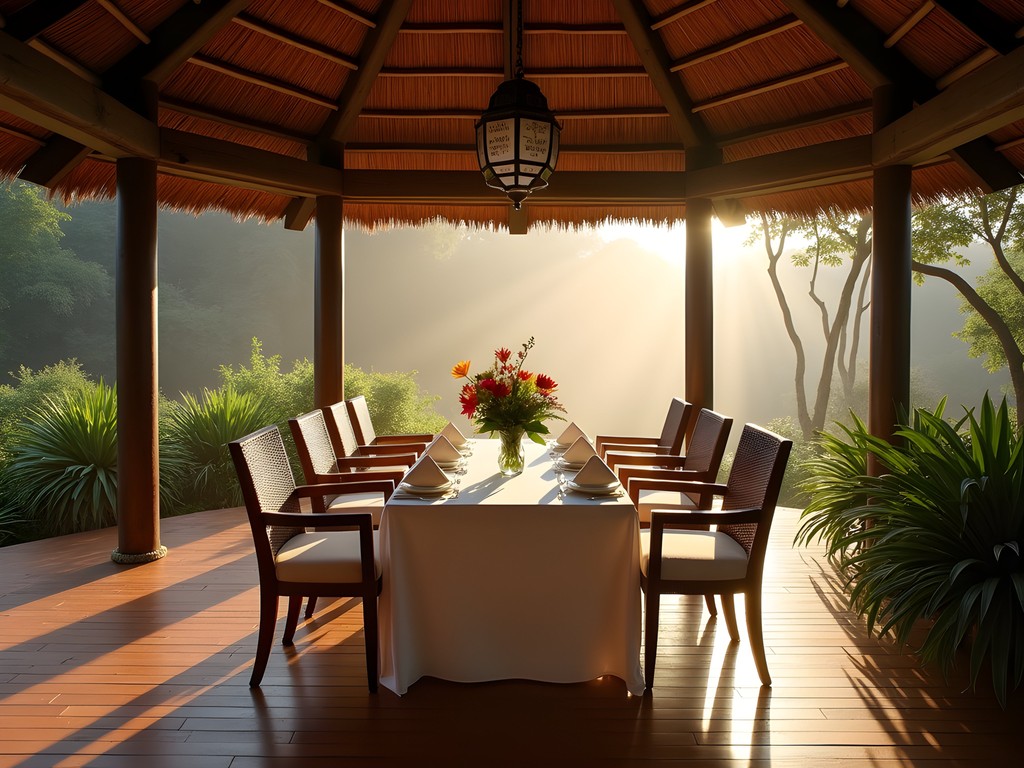
💡 Pro Tips
- Book the botanical garden VIP tour at least two weeks in advance through a premium hotel concierge
- Visit during early morning hours (6-8am) for the best light and cooler temperatures
- Request Dr. Mutombo as your guide if you're interested in medicinal plants
Riverside Elegance: Dining Along the Congo
The Congo River isn't merely a geographical feature of Kinshasa—it's the city's lifeblood and, increasingly, the backdrop for its most exclusive dining experiences. After years of designing waterfront healing spaces, I've developed a particular sensitivity to how water elements influence our sensory experience, and Kinshasa's luxury riverside venues masterfully capitalize on this natural asset.
Kintambo Kuna Lodge represents the pinnacle of this riverside dining scene. Situated on a carefully landscaped promontory overlooking the river, this establishment combines French culinary techniques with Congolese ingredients in a setting that would rival any Michelin-starred restaurant globally. My evening there began with a sunset cocktail featuring locally distilled spirits and indigenous botanicals—a mixology program developed by an internationally acclaimed bartender who returned to his Congolese roots after years abroad.
The seven-course tasting menu that followed was served on handcrafted ceramic plates produced by a local artist collective, each course arriving with a narrative connecting the dish to Congolese cultural heritage. The standout was a reinterpretation of traditional Moambe chicken using sophisticated sous-vide techniques while honoring the complex palm-based sauce that defines the dish.
For my dining experience, I brought along my travel binoculars, which allowed me to observe river traffic and waterfowl between courses—an unexpected enhancement to the experience that the maître d' noted many guests now emulate.
At approximately $250 per person for the full experience, Kintambo represents investment in local talent rather than imported luxury—a sustainable approach to high-end hospitality that resonates with my own professional ethos of place-based design.
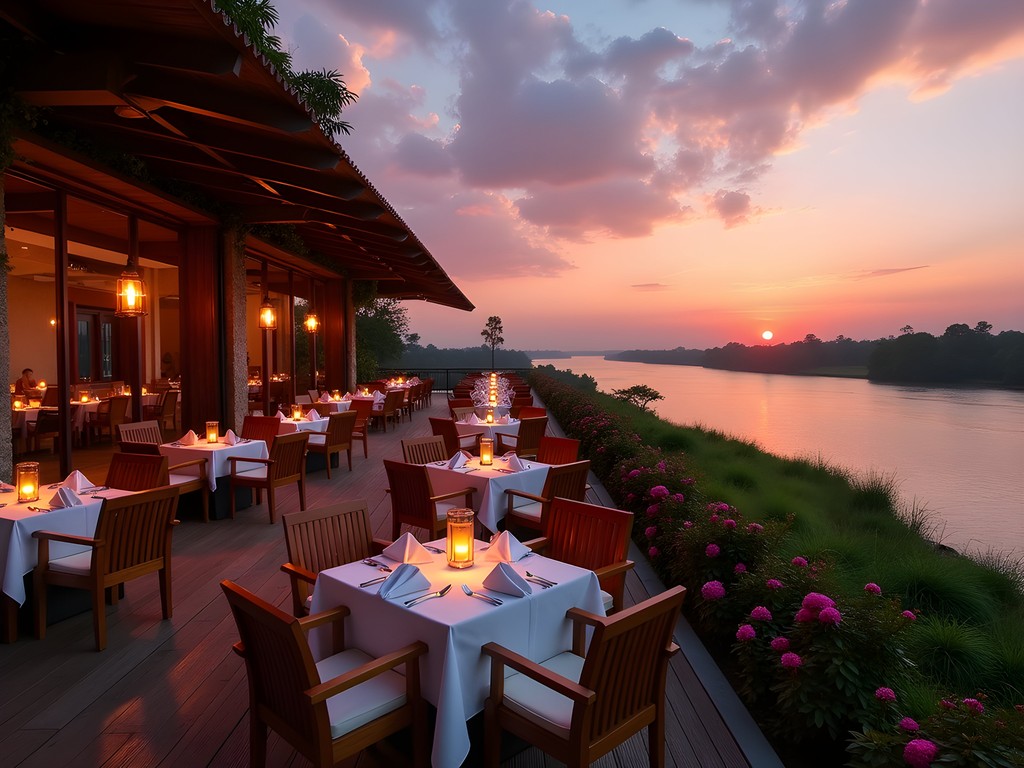
💡 Pro Tips
- Reserve at least three weeks in advance for riverside tables at Kintambo Kuna Lodge
- Request the seven-course 'River Journey' menu for the full cultural-culinary experience
- Bring compact binoculars to fully appreciate the river ecosystem during your meal
Artisanal Heritage: Luxury Through Cultural Immersion
True luxury travel transcends material comforts to offer authentic connection with place—something I've advocated throughout my career designing cultural landscapes. In Kinshasa, this manifests through exclusive access to the city's vibrant artistic communities and traditional craft practitioners.
Through arrangements made by my accommodation at the Pullman Kinshasa Grand Hotel, I spent a day with Master Sculptor Makala, whose contemporary interpretations of traditional Kuba design principles have earned international recognition. Rather than the typical tourist workshop experience, this was a professional exchange between two practitioners of spatial art—his in sculpture, mine in landscape architecture.
Makala's studio, located in a converted colonial-era building in the Gombe district, serves as both workspace and gallery. For serious collectors and art enthusiasts, he offers private viewings and personalized commissions. What struck me most was his integration of healing principles into aesthetic objects—sculptures designed not merely to be viewed but to create specific emotional and spiritual responses.
'This piece,' he explained, pointing to an intricate wooden sculpture incorporating copper elements, 'is designed for a healing space. The form encourages circular breathing patterns in viewers who sit before it.' The resonance with my own work designing therapeutic landscapes was profound.
For travelers seeking meaningful cultural immersion, I recommend investing in the luxury travel journal to document these interactions. My own journal has become an invaluable repository of design inspirations from encounters like these.
The exclusivity here isn't manufactured—it's about authentic connection with cultural practitioners who typically work outside the tourist economy. The $300 day experience concluded with a private dinner where Makala introduced me to other members of Kinshasa's contemporary art scene, conversations that continued well into the evening and established relationships I maintain today.
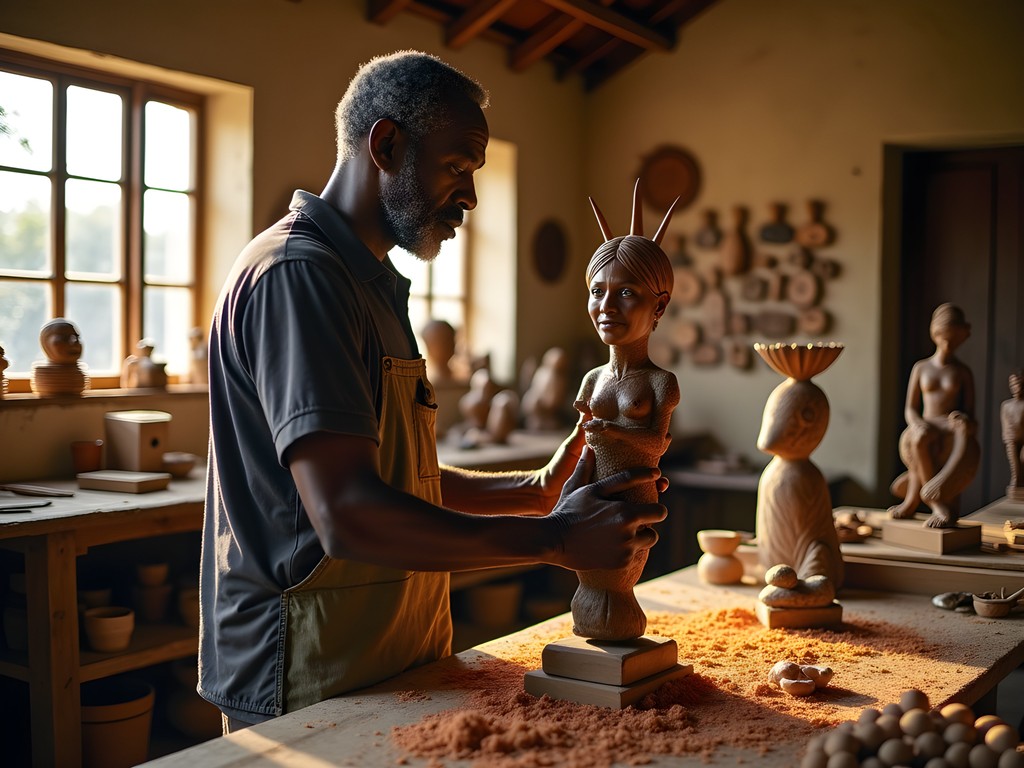
💡 Pro Tips
- Book artist experiences through premium hotel concierges rather than general tour operators
- Prepare thoughtful questions about technique and cultural context rather than focusing on purchasing souvenirs
- Consider commissioning a small piece as a meaningful alternative to mass-produced luxury goods
Urban Wellness: Kinshasa's Exclusive Retreat Spaces
My professional focus on therapeutic landscapes inevitably draws me to wellness experiences in every destination. Kinshasa surprised me with sophisticated urban retreat spaces that rival those I've consulted for in more established luxury markets.
The Wellness Sanctuary at the Fleuve Congo Hotel represents the pinnacle of this emerging scene. Unlike typical hotel spas that simply import international treatment protocols, this facility has developed a distinctive approach integrating Congolese healing traditions with contemporary wellness science. The result is a uniquely place-based luxury experience.
My customized wellness journey began with a consultation with resident herbalist Dr. Lisanga, who prescribed a treatment sequence based on both my personal needs and seasonal factors. The signature experience—a 90-minute 'River Stone Therapy'—uses heated basalt stones collected from specific Congo River locations believed to hold particular energetic properties. The treatment incorporates aromatic oils distilled from plants grown in the hotel's rooftop botanical garden, which I later toured with the property's landscape designer.
What elevates this beyond typical luxury spa offerings is the intellectual rigor behind the experience. Each treatment includes an educational component explaining the ethnobotanical foundations of the techniques—a thoughtful approach that acknowledges and honors the indigenous knowledge systems from which these practices derive.
For travelers seeking to extend this wellness experience, I recommend the travel aromatherapy kit, which allows you to bring therapeutic scent experiences into any accommodation. Mine has become an essential companion for creating familiar sensory environments during frequent travels.
At approximately $400 for a half-day customized wellness journey, this represents investment in both personal wellbeing and the preservation of traditional healing knowledge—a form of luxury consumption I can wholeheartedly endorse as aligned with principles of cultural sustainability.
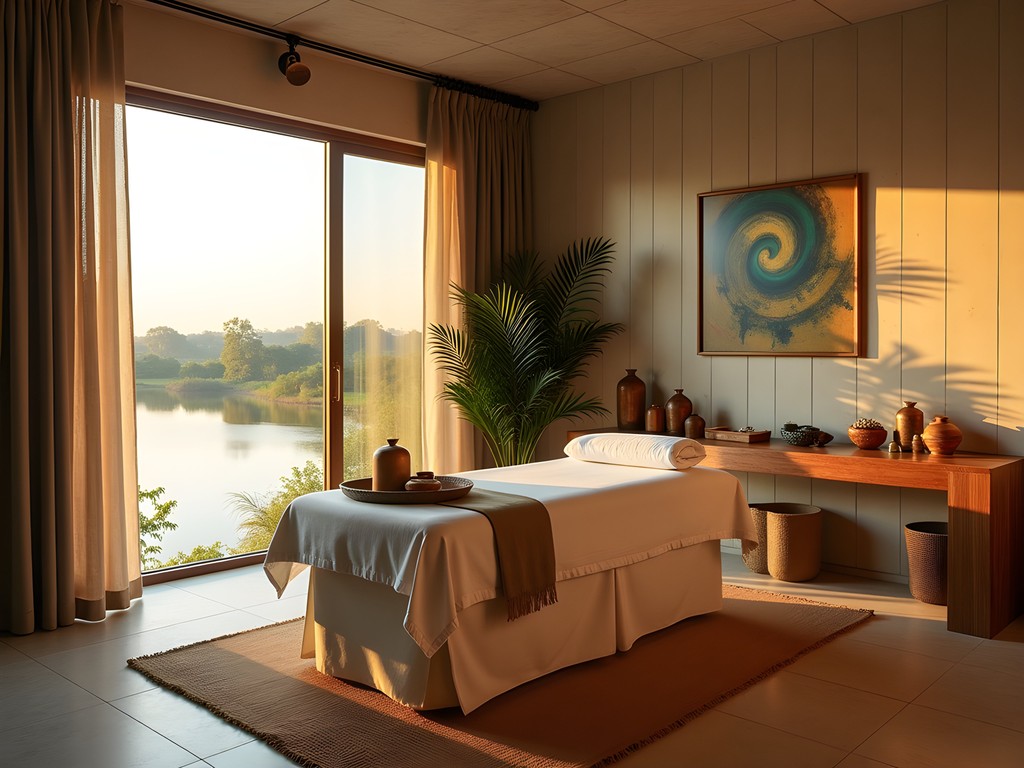
💡 Pro Tips
- Book wellness experiences at least 48 hours in advance to allow for personalized preparation
- Request the post-treatment botanical garden tour for deeper understanding of the ethnobotanical elements
- Consider the seasonal wellness packages, which align treatments with Congolese traditional calendar systems
Private Congo River Excursions: The Ultimate Luxury Experience
The culmination of luxury experiences in Kinshasa must certainly be private river excursions—offering perspectives of the city and surrounding landscapes inaccessible by any other means. As someone who has designed numerous waterfront healing spaces, I was particularly eager to experience the Congo River intimately rather than merely admire it from shore.
Through connections at my hotel, I arranged a sunset cruise aboard the Rivière Royale, a meticulously restored wooden vessel originally built in the 1940s. Now outfitted with contemporary luxury amenities while preserving its historical character, this craft represents the perfect balance of heritage and comfort.
Captain Bofassa, who has navigated these waters for over thirty years, served as both guide and storyteller during our three-hour journey. His knowledge of river ecology, historical contexts, and changing riverscapes provided intellectual substance that elevated the experience beyond mere scenic touring.
'The river is never the same twice,' he noted as we observed the interplay of current patterns near Bamu Island. 'Even after three decades, she still surprises me.' This dynamic quality of water landscapes—something I frequently incorporate into my therapeutic garden designs—was magnificently demonstrated as we navigated various channels and observed how dramatically the light transformed the water's surface.
The experience included a private dinner prepared by a chef from one of Kinshasa's premier restaurants, served at a table arranged on the vessel's upper deck. As we dined on contemporary interpretations of traditional Congolese cuisine, Captain Bofassa pointed out significant landmarks and wildlife—including a family of hippopotamuses observing us from a respectful distance.
For capturing these magnificent river vistas, I relied on my travel camera, whose exceptional zoom capabilities and low-light performance proved ideal for riverine wildlife photography without compromising on portability.
At approximately $1,200 for an exclusive charter accommodating up to six guests, this experience represents the pinnacle of Kinshasa luxury—offering perspectives of the landscape unavailable to most visitors while supporting the preservation of traditional river navigation knowledge.
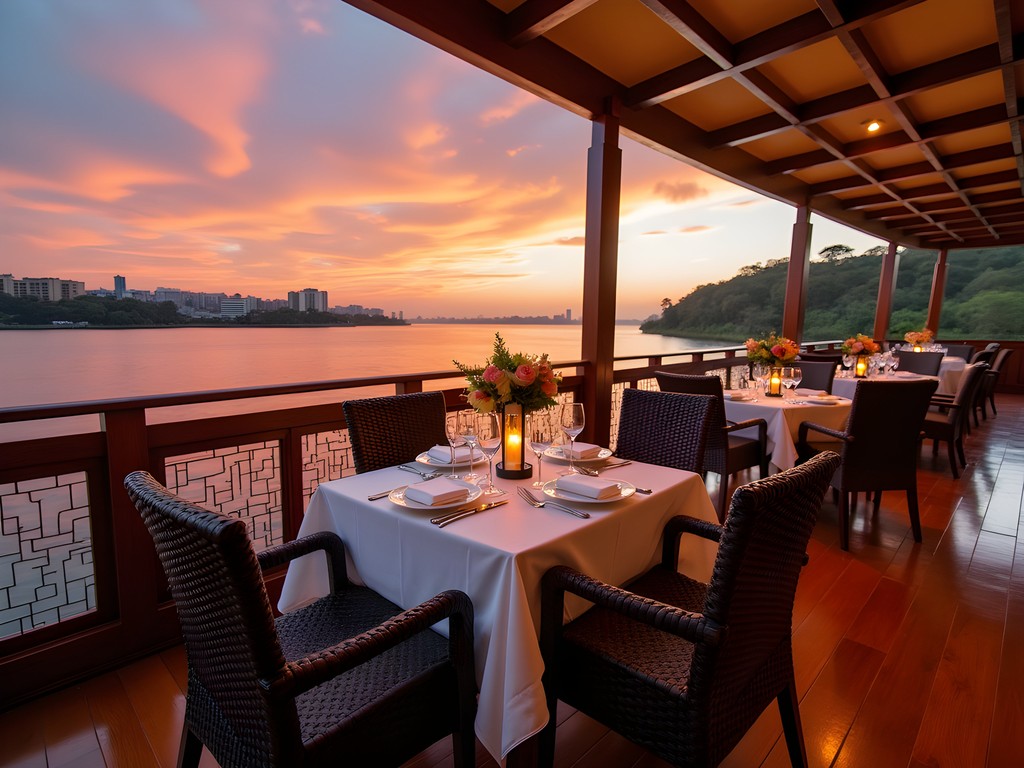
💡 Pro Tips
- Book private river excursions at least two weeks in advance and be flexible with dates due to seasonal water level variations
- Request Captain Bofassa specifically if you're interested in ecological and historical narratives
- Schedule your cruise for the hour before and during sunset for the most dramatic lighting conditions on the water
Final Thoughts
As my aircraft lifted from N'djili International Airport, I gazed down at the Congo River—now familiar in ways I couldn't have anticipated a week earlier. Kinshasa revealed itself to be a city of profound contrasts, where emerging luxury experiences are defined not by imported concepts but through thoughtful elevation of local excellence. The therapeutic landscapes I encountered—from meticulously curated botanical gardens to the mighty river itself—have already begun informing my design work back in London. True luxury travel should transform us, challenging preconceptions while deepening our connection to place. By this measure, Kinshasa offers something far more valuable than conventional opulence: authentic experiences that cannot be replicated elsewhere, delivered with a distinctly Congolese perspective that honors rather than erases cultural context. For the discerning traveler willing to look beyond traditional luxury destinations, Kinshasa awaits—ready to surprise, inspire, and transform.
✨ Key Takeaways
- Kinshasa's luxury scene is defined by exclusive access to natural and cultural experiences rather than conventional opulence
- The integration of traditional Congolese knowledge with contemporary luxury creates unique, place-based experiences impossible to replicate elsewhere
- Building relationships with local experts—from botanists to artists—provides the deepest and most rewarding luxury experiences in the city
📋 Practical Information
Best Time to Visit
June to September (dry season) offers optimal conditions, though luxury experiences are available year-round
Budget Estimate
$800-1,200 per day excluding international flights
Recommended Duration
5-7 days
Difficulty Level
Advanced
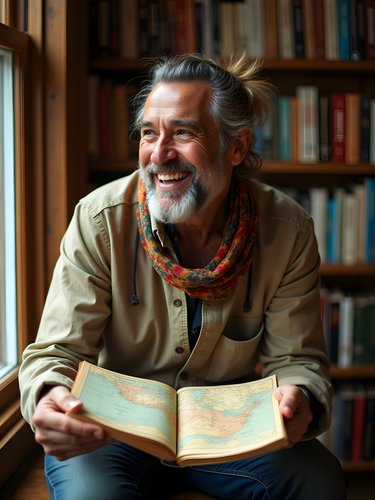
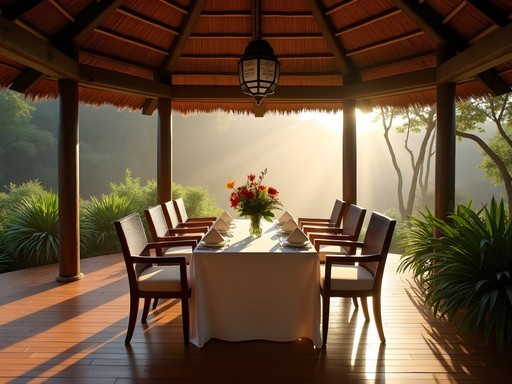
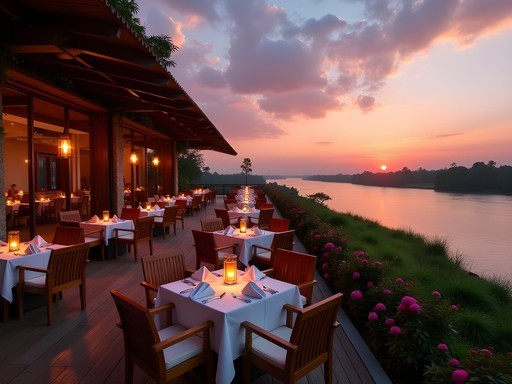
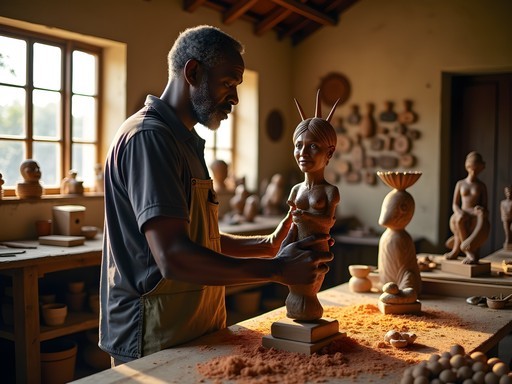
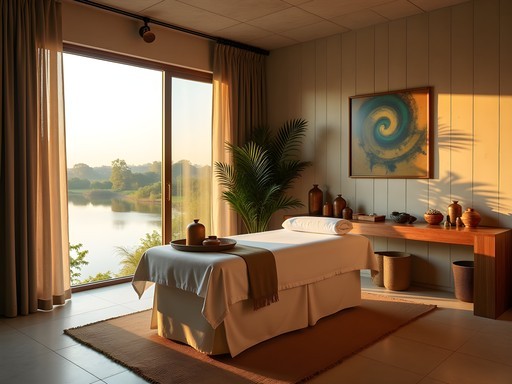
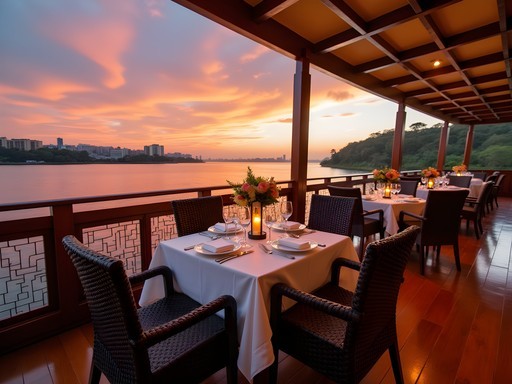


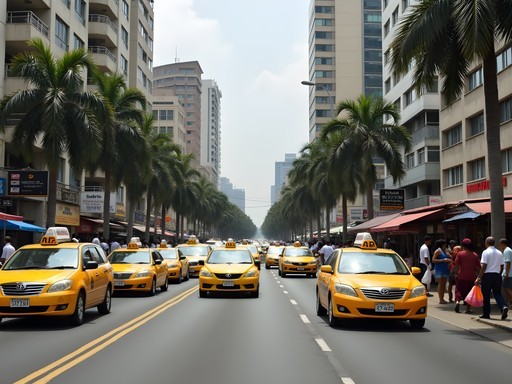
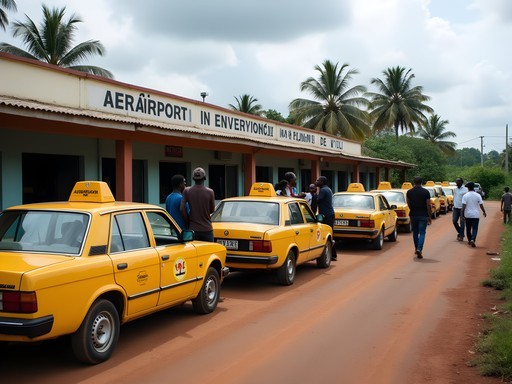
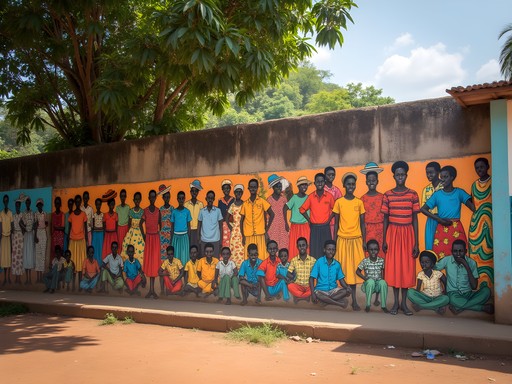
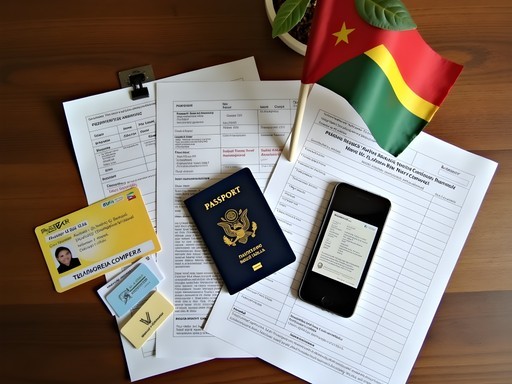

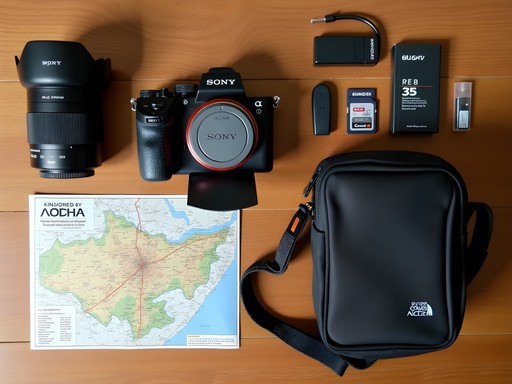
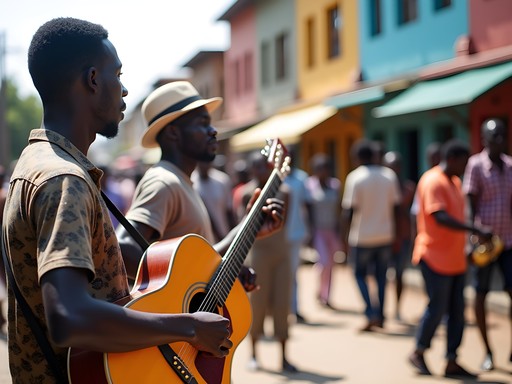
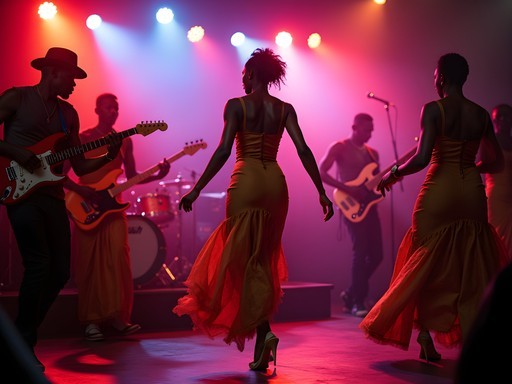
Comments
escapeadventurer
Which of those riverside restaurants would you recommend for a special anniversary dinner? Going in December!
Riley Griffin
I took my teenage kids to Kinshasa last winter as part of our "unexpected destinations" theme for family travel, and I was nervous about it, to be honest. But we had an incredible time! The wellness retreats you mentioned were perfect for us after the long flight. My kids still talk about the cooking class we took where we learned to make traditional Congolese dishes with modern presentation. The chef was trained in Paris but returned to showcase local cuisine. One tip for families: the Lola ya Bonobo sanctuary just outside the city is worth the trip - luxury ecotourism at its finest and my kids were mesmerized by the conservation work. We used this travel guide which had excellent safety tips and high-end recommendations that weren't on the usual tourist radar.
wanderlustnomad
Riley - did you need special vaccinations before going? Planning a trip there and trying to figure out the prep work!
Riley Griffin
Yes, we needed yellow fever certificates and malaria prophylaxis, plus the standard travel vaccines. A good travel clinic can sort you out about 6-8 weeks before your trip. The high-end hotels all had mosquito protection, but better safe than sorry!
coolperson
Those botanical gardens look AMAZING! Adding Kinshasa to my bucket list right now!
Sophia Gomez
Taylor, this resonates so much with my experience! I was in Kinshasa last year for a business conference and was equally surprised by the luxury offerings. The contrast between the city's reputation and reality is stark. That riverside dining you mentioned - I tried Chic River (I think that's the one you're referring to?) and the sunset views were absolutely magical. The fusion of French techniques with local ingredients was unlike anything I've experienced elsewhere in Central Africa. Did you get a chance to visit the fashion district? The emerging designers there are creating some incredible pieces that blend traditional patterns with modern silhouettes.
wanderlustway
Sophia, was safety an issue at all? That's my main concern about visiting.
Sophia Gomez
Like most major cities, you need to be street smart. I felt completely safe in the business and tourist areas, especially the upscale spots Taylor mentions. I used a local guide for some excursions which I'd definitely recommend - they know exactly where to go and not go.
wanderlustway
Wow, Kinshasa for luxury travel? Never would have thought! Eye-opening post.
Frank Garcia
Really appreciate this perspective, Taylor. I spent time in Brazzaville across the river last year and kept hearing about Kinshasa's evolving scene but never made it over. The botanical sanctuary section particularly caught my attention—green spaces in massive African cities often get overlooked in travel content, but they're such crucial respites. Did you find the visa process straightforward? That's been my main hesitation for a return trip to the region. Also curious about your transportation setup between these luxury spots given Kinshasa's notorious traffic patterns.
coolblogger
Good question about the visa! Also wondering this
coolblogger
How safe did you feel Taylor? Thinking about going but my family is worried
Frank Garcia
Not Taylor but I've been looking into this extensively. From what I've gathered, staying in established areas and using recommended drivers makes a huge difference. The luxury establishments mentioned in the post typically have solid security infrastructure. That said, it's worth connecting with local contacts or tour operators beforehand—situational awareness is key in any unfamiliar urban environment, especially one as large as Kinshasa.
wildtime
Wow never thought of Kinshasa as a luxury destination!
Frank Garcia
Same here! Really challenges the usual narrative about Central Africa. I've been researching DRC for a potential trip and the contrast between what you read in mainstream media versus what travelers actually experience is fascinating.
wildtime
Right?? Would love to see more posts like this
WorldExplorer55
That sunset shot over the Congo River is absolutely stunning! What camera did you use?
TravelAuthor_Taylor
Thanks! Just my smartphone actually - Google Pixel with some light editing.
CuriousTraveler
Never would have thought of Kinshasa for luxury travel! Eye-opening post.
Venture X
Premium card with 2X miles, $300 travel credit, Priority Pass